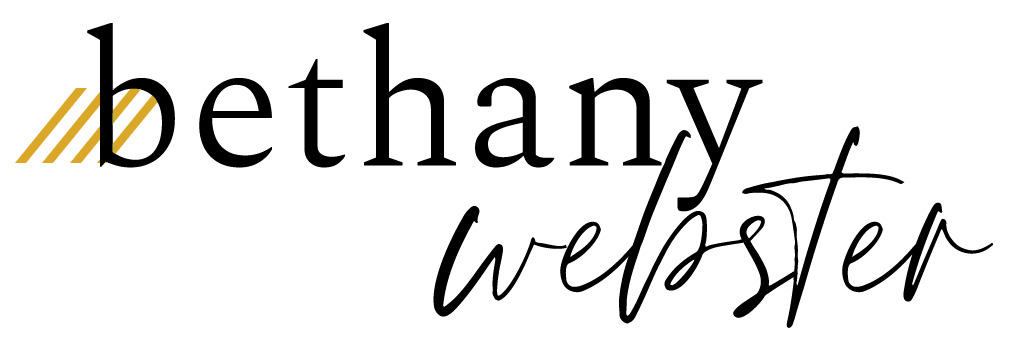From Idealization to Integrity: Healing from our Collective Idealization of False Power

Lately, world politics feels like a macro version of a dysfunctional family.
Have you been noticing this?
There’s an underlying connection between the trauma and narcissism within families and the patterns of pathological narcissism playing out in the political realm, as well as the history of colonialism and white supremacy in our history.
It’s all inter-connected!
Ever since I started talking about the Mother Wound in 2013, I have always defined the Mother Wound as a product of patriarchy. The Mother Wound is an internalized set of limiting beliefs and patterns that reinforce patriarchal values, that say it’s best for women to be small, silent and self-sacrificing and for men to be violent, suppressed, and angry. These values, norms and painful patterns are most insidiously transferred through the mother because she is our first and primary attachment figure. Our fathers are influential of course, but mothers tend to be primary influencers and “cultural editors” of how we see the world.
Feminist Kate Millet famously said “The family is patriarchy’s chief institution” meaning that the values of patriarchy that are based in “power over others” are transferred most effectively in the family line.
While living under patriarchy we have a long history of collectively idealizing powerful white men who have lots of money and influence. For white women, proximity to powerful white men has meant safety and security, especially to white women in decades past when we didn’t have the right to have our own bank account, job or reproductive rights. Our white maternal ancestors may have taught for generations that coddling or ignoring the harmful colonial and racist impulses of their husbands, sons and brothers was part of that survival.
We see this widespread idealization of powerful white men still today to a point of irrationality today as many people are admiring the very leaders who are causing them harm. These leaders lack empathy, integrity, ethics or basic goodwill to others. We see a sociopathic focus on wealth acquisition for its own sake and a pathological entitlement for power and resources with a disdain for responsibility of any kind. We are also seeing compliant, subservient, cold, patriarchal women supporting these men, encouraging and supporting the destruction they are playing out.
The need to idealize reveals unmet childhood needs.
We need to stop idealizing the false power of patriarchy which is “power-over” others and instead find true power in our personal integrity, which is a deep alignment between your values and your actions, beliefs and choices.
It’s impossible to have full integrity if we are projecting our unmet childhood needs onto someone else in our lives, whether we are idealizing a potential romantic partner or a political leader.
Idealization is a magnification of the positive qualities of a person into something extraordinary and super-human, while at the same time, minimizing or downplaying their negative or harmful qualities.
Idealization can be a necessary illusion for a child growing up with trauma but as we become adults we have to heal and grow out of a tendency to idealize in order to embody true integrity and sovereign adulthood.
Idealization reveals an unmet childhood need to project goodness and benevolence onto a parent, which was an imperative for us as kids and required as part of our healthy development of self. However, if our mother or father let us down continually, or wasn’t safe or stable, we will seek to fill those “gaps of attachment” in a surrogate-parent-figure to idealize in the outer world. Sometimes this is obvious and overt but others the projection can be quite insidious and subtle.
Some reasons that we idealize others may include:
- To relieve anxiety and provide distraction from our daily life
- To alleviate feelings of inadequacy and insecurities of our own
- They serve as symbols of qualities we would like to possess, such as strength, cleverness, assertiveness, etc.
- They provide a sense of reassurance and order in a chaotic world
- They represent qualities we wanted in a parent that we never had, such as safety, reassurance, clarity, etc.
Into adulthood, we may idealize teachers, friends, colleagues, romantic partners, etc. and this can cause problems in our relationships. Because idealization causes us to ignore red flags, take crumbs of respect, and feel desperate for validation from that person. This can also cause deep shame and powerlessness because we feel the other side of the coin of idealization, which is the inner child’s core pain, suffering and victimization.
It seems as though many of us are blended with the wounded inner child within, and looking for “good daddy” Trump to save us. If we grew up in an authoritarian household, he may have seemed somewhat familiar, safe and compelling. If we are in denial of our own childhood trauma and want simplistic solutions that do not require any reflection or responsibility, we may see his scapegoating of immigrants, poor people or people of color as confirming and validating.
To those with unhealed childhood trauma, feeling a sense of “shared hate” of the outgroup, will feel like shared love inside their “ingroup.”
Many overlook the suffering he is creating in the hopes that he he has a plan and all will be well. This is what I call “the impossible dream” meaning, if we just keep appeasing the harmful parent, they will one day change and turn good. But this doesn’t happen. Destructive, toxic leaders with no capacity for self-reflection cannot be reasoned with, they can only be stopped and contained by some external force as they don’t have a moral compass to regulate their own destructive impulses.
Of course there are many of us who do NOT idealize these pathological leaders yet we look on in horror as others do feeling baffled, confused, frustrated and in deep grief. Learning about the psychological underpinnings of what is happening can give us a sense of perspective and help us feel grounded in our own connection with ourselves and with others who “get it”.
Many of the men in power in the United States right now are pathological narcissists who are playing out their unhealed, unconscious attachment wounds onto the population. They are displacing the unprocessed rage and grievances towards their abusive fathers and mothers onto the entire globe. Psychiatrists and psychologists have long been telling the public for years that Trump is unstable and not fit for office but shockingly this has had little effect on the situation over the past 10 years. I heard someone joke that if these men in power in the U.S. would go to therapy, we might be in a better situation.
It’s been written that Donald Trump’s father told him “You’re either a killer or a loser.” No wonder he has no capacity for empathy and takes sadistic pleasure in doing harm to others as it must symbolize pleasing his un-pleasable father. He keeps talking about winning but loses abominably in everything he does. This seems like a combination of a “repetition compulsion” and the “impossible dream” of pleasing the abuser parent. His anger at his dad is mis-directed to all political enemies, people of color, immigrants, women, workers, other countries and the general public.
It’s time for us to collectively recognize pathological narcissism as a world issue that affects us all as well as understand the causes of idealization that stem from our unmet childhood needs, which gives political narcissism and fascism the soil in which to thrive.
We’re seeing the effects of one man’s unhealed childhood trauma playing out massive destruction while many are feeling powerless to stop him. Many people in our government are being passive, fawning, disassociating, downplaying, minimizing or deluding themselves about what’s happening. Other world leaders are stepping up to constrain him and push back and hopefully more will do so.
It may feel like there’s no “adult” at the wheel of this “collective family” right now and this can be really familiar and triggering to trauma survivors.
Trump and his enablers are examples of the fact that if we do not process the valid rage and healthy anger we feel about the injustices we suffered as innocent children, that emotional energy does not go away, it gets displaced and we are likely to suffer, project and perpetuate further injustices onto others.
For a child undergoing trauma, excessive idealization can be a survival strategy to project benevolence onto the harmful parent in order to stay in denial enough to survive the horrific ordeal of having no choice but to live in their household, which may include having been physically or sexually abused, parentified, neglected, abandoned, to some degree.
Dysfunctional families can function like cults, in which a narcissistic parent places him or herself at the top of a hierarchy and maintains control and compliance of the other family members through some degree of gaslighting, manipulation, sadism and triangulation to name a few. They try to make family members feel isolated and dependent on them as well as feel powerless to manage their unpredictable moods and whims. They thrive on the power and control they have over others and weaponize the idealization of the children feel for them as cover to carry out harmful dynamics in the family.
How can we as a people outgrow the idealization and projection of childhood needs onto a manipulative leader who does not have our best interests at heart?
Maybe you’ve never idealized a political leader, but perhaps you’ve felt this with a friend, a boss, a colleague, a neighbor or someone in your community, either in real life or online.
Idealization in adulthood always leads to pain because no other adult can perform the function of the “good parent” we needed in childhood. We will always be disappointed and feel betrayed in those situations. But in that feeling of hurt is an opportunity because we then have access to the original pain of our childhood which is primed for healing, correction and transformation.
How can we, especially white women, discover and deepen our integrity rather than comply with the patriarch out of self-preservation, selling ourselves out and others in the process?
Our blindness to what false power is (fear masquerading as strength) reveals that we need to do more healing of our personal (and collective) traumatic histories.
The level of denial and blindness towards the harm we suffered in childhood seems to magnetize leaders to us who embody same or similar destructive capacities.
Idealization reveals an unmet childhood need to project goodness and benevolence onto a parent, which we needed to do as kids. If our mother or father let us down continually, or wasn’t safe or stable, we will find a surrogate-parent-figure to idealize.
What dissolves the need for idealization in adulthood is to grieve the “parent in the parent” meaning, that even though the person who was your mother or father and played that role, there was no true emotional support for you from that person. It means having the readiness and courage to see the truth that there was no true parental energy; not enough concern, protection, empathy or love for you. Lacking in emotional maturity, stability or psychological capacity, many of our parents functioned more like wounded children in adult bodies, who had no true capacity to serve the important function of being the parent you needed and deserved.
To truly heal, we have to transfer our valid rage, grief and pain that we projected onto a surrogate person towards the true source, which is our parent(s). That’s the only place where true resolution and healing can happen. When we can feel safe enough to emote and process the pain about THAT original relationship and the truth of what happened to us as innocent kids, then we have a great chance to heal, accept and move on feeling liberated and empowered. Getting support with therapy for this is key. We do not need our parents in our lives to heal and thrive.
On the path of healing the Mother Wound, one of our tasks is to find and deepen our own separate sense of agency, autonomy and authenticity.
Another way of saying it, is we have to find our “Healthy Adult Energy,” the potential for which was likely stunted and thwarted to some extent in our development if we grew up in a dysfunctional family. It means to speak up on our own behalf and not collapse into fawning, people pleasing or attenuation, which we had to do to survive dysfunctional families.
Healthy Adult Energy requires emotional differentiation from the patriarchal parent(s) (mother and/or father) and frees us up to be real, authentic, true, and to have deep discernment. Without this we can be too trusting, naive, desperate, impulsive, reactive, needy and projecting our safety out on other people, places and things, rather than feeling it situated within ourselves.
Healthy Adult Energy also means being emotionally differentiated from the needs of the inner child as well, allowing us to have true adult integrity, an alignment between our values and our choices, behaviors and actions.
It’s a paradox that as we lovingly care for the inner child meeting those early unmet needs over time, his or her energy stops disrupting and distorting our healthy adult perspective, bringing more clarity, lightness and energy into our system.
The healing opportunity now is to expand our capacity to clearly recognize abuse and injustice and unapologetically call it out. To be a cycle-breaker, a disrupter and cause “good trouble!”
Healthy Adult Energy means being conscious of the fears of the inner child without letting them control your behavior, which allows you to see and act accordingly on the”red flags” in other people, confidently advocating for your own needs, listening to your intuition and setting boundaries accordingly. It means not over-functioning for others and no longer tolerating poor treatment. It also means speaking up in the face of abuse or injustice that’s happening to other people. These are all examples of personal sovereignty, some of the many amazing outcomes of healing the Mother Wound.
“Healthy Adult Energy” is what makes true integrity possible and dissolves the need to idealize others
Integrity is true power based on honesty, authenticity and personal sovereignty. When your own integrity is your “North star” there’s a safety, satisfaction and security that comes from that, no matter what comes up in your life. Your integrity is always within your control and is part of your personal power. It’s a sense of finding deep safety in being true to yourself no matter the cost, with nothing to prove. Integrity brings a deep satisfaction of being true to yourself and trusting that whatever comes from those choices will be best for all.
Integrity means welcoming accountability and responsibility because your sense of being a good person is intrinsic, innate and not predicated on the external validation of other people. This allows us to take criticism, make mistakes and see our own humanity without it feeling damning or devastating.
Integrity fosters healthy relationships because there’s no will to control or have power over others, because your power comes from within yourself. There is a freedom that comes with this that no possession or status can compare to! Integrity comes with maturity and a willingness to face yourself and be real about what you see. You can love yourself, flaws and all and embrace your humanity in ways your parents never could.
So what gives one the strength to do be in integrity when the stakes are high? To take empowered action in the face of dysfunction, toxicity and abuse of any kind…
The strength comes from the place most people do not want to go. Integrity is born from committing to doing the inner work of learning to cultivate a loving relationship with your own inner child who has unmet attachment needs, and relating to that child from a place of empathy, compassion and self-love. If we don’t step into this kind of responsibility, when triggered, the inner child will project her safety onto other people (even very harmful people), idealize them, and we will feel compelled to unconsciously play out old dynamics and power plays from our childhood trauma.
Healing requires having the courage to see the injustice YOU went through in your childhood, having deep compassion for the innocent child you were, feeling the necessary healthy anger on behalf of that child, and grieving that it was not your fault. Over time, acceptance gradually arrives and you feel liberated and more assured and confident within yourself.
Integrity doesn’t mean we’re not afraid to stand up and speak up, but it means we have an inner strength and integrity that feels safer, truer and more compelling than the false safety of silence and complicity.
It means your inner child feels relatively safe and held inside you, and no longer sees her safety as rooted in compliance to the abuser/patriarchal parents. This clears the way for your sovereignty and integrity to be deeply embodied and integrated into who you are.
This takes time and inner work to get there and is worth every step. It liberates us to be our most fully expressed self and that includes owning our integrity and values with gusto!
The result is that we can increasingly use our power for good and for the benefit of all.
Photo credit: Gerd Schweinitz via Unsplash




